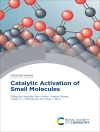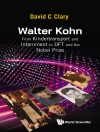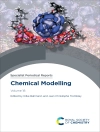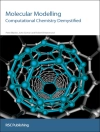Historically pharmaceutical and fine chemical products have been synthesised using batch methods, but increasingly chemists are looking towards flow chemistry as a greener and more efficient alternative. In flow chemistry reactions are performed in a reactor with the reactants pumped through it. It has the benefit of being easily scaled up and it is straightforward to integrate synthesis, workup and analysis into one system. Flow chemistry is considered a greener alternative to batch chemistry because it is easier to control and minimise hazardous intermediates and by-products. There is significant interest in the use of flow chemistry both in the lab and on an industrial scale.
Flow Chemistry provides an update on recent advances that have been made in the field. Particular emphasis is given to the new integrated approaches that bring together several elements to implement flow processes as a regular green chemistry tool for the chemical industries. With chapter contributions from several well-known experts in the field, this book is a valuable resource for researchers working in green chemistry and synthesis, chemical engineers and industrial chemists working in the pharmaceutical and fine chemicals industries.
Spis treści
Recent Perspectives in Catalysis under Continuous Flow; Green Biotransformations under Flow Conditions; Organometallic Chemistry in Flow in the Pharmaceutical Industry; Perspectives on the Use of Flow Systems to Carry Out Organic Photochemical Reactions; Electrochemistry under Flow Conditions; Sustainable Approaches to C–H Functionalizations Through Flow Techniques; Radical Polymerisation under Flow Conditions; Ionic Polymerisation and New Approaches to Polymerisation under Flow Conditions; Continuous Flow Synthesis of Nanomaterials; NMR Microcoils for On-line Reaction Monitoring; Flow Chemistry Systems Based on Membranes; New Microreactor Designs for Practical Applications Realized by Additive Manufacturing; Additively Manufactured Advanced Flow Reactors for Enhanced Heat and Mass Transfer; Integrated Microreaction Systems of Microdevices with Conventional Equipment; Automation of Flow Chemistry; Upscaling the Aza-Diels–Alder Reaction for Pharmaceutical Industrial Needs in Flow Chemistry; Industrial Continuous-flow Chemistry under c GMP Conditions
O autorze
I obtained my Ph.D. degree in organic chemistry and materials science from the University Jaume I, Castellon (Spain). Over the past years as a result of my intensive research activity, I am co-author of 41 publications in per-reviewed International Chemistry Journals of the highest impact (such as Chem. Commun., Org. Lett., Adv. Synth. Catal., J. Org. Chem., Green Chem., Ind. & Eng. Chem. Res, etc…). In at least four of these publications, I appeared as a senior corresponding author, reflecting my research leadership. In addition, I have given 20 communications and 7 lectures in international conferences and Symposia. During my Ph.D. (1996-2001) I worked in the field of asymmetric synthesis and heterogeneous catalysis. I studied the role played by the support over the outcome of heterogeneous catalysed reaction. I have also worked in the synthesis of small-focused library of supported catalysts as a fast and easy tool for the development of more efficient asymmetric catalysts. I also developed methodologies based on FT-Raman as a simple tool for the fast monitoring of reactions on polymer and silica supported reagents and catalysts. After my Ph.D., I moved to work with one of the world leaders in supercritical fluid, Prof. M. Poliakoff, at the Clean Technology Group at Nottingham University. I was awarded with a very competitive individual Marie Curie Fellowship. During my stay in Nottingham, almost 4 years, I gained experience in a wide range of processes in supercritical water (SCW): reactor design, phase behaviour, oxidation reactions, and High Temperature High Pressure Spectroscopy, which were areas of knowledge completely new for me. Besides, I was involved in the training, mentoring and tutoring of 3 Ph D students, 3 research visitors and two project students. I was also directly involved in join collaboration academy-industry (Invista Tech. Ltd.). I wish to point out the excellent productivity of this period generating 12 publications and 3 patens. There












